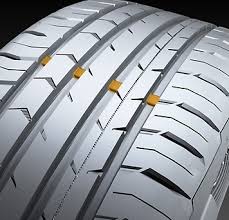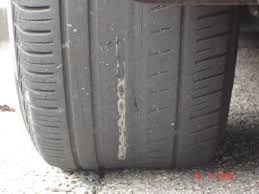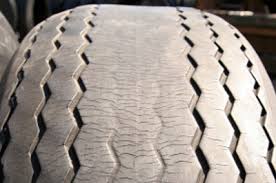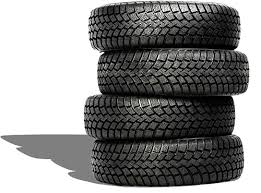When the United Kingdom voted to leave the European Union back in June, many of us predicted that Ireland would be immediately swamped by an incoming tide of cheaper car imports, as the value of Sterling plummeted and the extra choice and lower prices of the UK car market suddenly looked that much more attractive.
It didn’t quite happen like that – there was no Tsunami, but the tide has been, shall we say, swelling and the number of imported used cars is now up by around 50 per cent on the same period last year. Why? Simple – value for money. We spoke to Ashley Winston, head of UK car finding service Palmdale, and he said that the numbers of Irish buyers contacting him had risen dramatically.
UK market is attractive for buyers
 “The Irish market has just gone nuts for us recently” said Winston. “We had been delivering a car to Ireland maybe once or twice a month previously, but now we’re over there every week. Let me give you an example – one client, who bought an Audi A4 from us, spent STG£16,875 on the car, paid the VRT and paid for us to deliver it to Dublin, which includes paying air fare for the delivery driver to get home. And he told us that he still saved €5,000 on the purchase.”
“The Irish market has just gone nuts for us recently” said Winston. “We had been delivering a car to Ireland maybe once or twice a month previously, but now we’re over there every week. Let me give you an example – one client, who bought an Audi A4 from us, spent STG£16,875 on the car, paid the VRT and paid for us to deliver it to Dublin, which includes paying air fare for the delivery driver to get home. And he told us that he still saved €5,000 on the purchase.”
More significant still, the market has now moved to the point where those buying less expensive cars can now score significant savings. “Another client came to us looking for a Toyota Auris. Now normally, we try to tell people that they’re not going to make a big enough saving on a car like that to make it worth their while, but this buyer was adamant and said he’d done his sums. He spent STG£5,590 on a 2011 Auris, flew to Heathrow to collect it and drive it back, and he still insisted to us that we has saving money compared to buying one at home.”
Which is good news for the dedicated car buyer, we suppose. The more that the cost of importing a car from the UK comes down, the more choice we have as car buyers and the better value we can all find. All of which is good.
But buyer beware
 But there comes with that extra choice, and that increased tapping into the much larger UK market, a danger and that is the condition and history of the vehicle you’re buying. Given the large numbers of write-offs and stolen/recovered cars that are in the UK car market, it’s so important to get any prospective purchase thoroughly history checked for any skeletons lurking in its closet.
But there comes with that extra choice, and that increased tapping into the much larger UK market, a danger and that is the condition and history of the vehicle you’re buying. Given the large numbers of write-offs and stolen/recovered cars that are in the UK car market, it’s so important to get any prospective purchase thoroughly history checked for any skeletons lurking in its closet.
And it’s still important to conduct those basic physical checks of a car, for the items that a history check can’t see. Specifically this week, we mean tyres because a new study in the UK has revealed that as many as a quarter of all UK cars have faulty tyres.
Tyre condition
A survey by TyreSafe revealed that more than a quarter of all tyres were already beyond the legal tread depth limit when they were replaced, something that could cause a fine, some penalty points, an NCT failure or much, much worse. How much worse? Well, put it this way – studies have proven that the braking distance of a vehicle with tread of 1.6mm (the bare minimum legal amount) is nearly 12-metres further than a vehicle with new tyres when braking in the wet from 80kmh. 12-metres is roughly the length of three family hatchbacks. Think about that for a moment.
 Stuart Jackson, Chairman, TyreSafe, said: “The Tread depth survey results are a concern. Figures from the Department for Transport show that dangerous tyres are the largest single contributory factor in accidents resulting in casualties of any vehicle defect – including brakes. If the number of casualties from tyre-related incidents is to be reduced on our roads, the UK’s motorists need to change their attitude to this primary safety feature and carry out regular checks to ensure their vehicle’s tyres are roadworthy.
Stuart Jackson, Chairman, TyreSafe, said: “The Tread depth survey results are a concern. Figures from the Department for Transport show that dangerous tyres are the largest single contributory factor in accidents resulting in casualties of any vehicle defect – including brakes. If the number of casualties from tyre-related incidents is to be reduced on our roads, the UK’s motorists need to change their attitude to this primary safety feature and carry out regular checks to ensure their vehicle’s tyres are roadworthy.
“The concern comes not just from the number of illegal tyres at the point of replacement, but also the proportion which were below 2mm – those with just 0.4mm left (half the thickness of a bank card) before reaching the 1.6mm legal minimum."
“While a tyre is legal at this point, the amount of distance it can cover and remain within the law is difficult to predict and can only be verified by regular checks. TyreSafe’s own research has revealed one-in-five drivers have never checked their tyres and the majority of the remaining vehicle owners do not do so on a regular basis."
“The obvious conclusion is that while one-in-four tyres are illegal at the point of replacement, a further 43% are changed before reaching 1.6mm more by good luck than good judgement. TyreSafe urges drivers to check their tyres regularly before their luck runs out.”
Ireland also has an issue
 The story is much the same on this side of the Irish Sea. Earlier this year, the Road Safety Authority said that, in an investigation of fatal accidents between 2008 and 2012, faulty or unsafe tyres was the main mechanical component involved in those accidents. The RSA also said in the majority of cases where tyres were an issue, there was a combination of tyres and behavioural issues such as alcohol, drugs, speed, distraction or fatigue.
The story is much the same on this side of the Irish Sea. Earlier this year, the Road Safety Authority said that, in an investigation of fatal accidents between 2008 and 2012, faulty or unsafe tyres was the main mechanical component involved in those accidents. The RSA also said in the majority of cases where tyres were an issue, there was a combination of tyres and behavioural issues such as alcohol, drugs, speed, distraction or fatigue.
So, what can we learn from this? We can learn that tyres, one of the most important safety aspects of your car, are too often ignored or sidestepped by too many owners. Tyres in good shape, or newly fitted, can be a small indication that a second hand purchase has been kept in good condition, just as badly worn or knackered tyres might give away that a car has not been properly looked after.
We must also be cognisant of the fact that while the all-important history check tells us crucial things about a car’s financial, safety and ownership backgrounds, that has to go hand-in-hand with getting out there and physically inspecting any potential purchase.